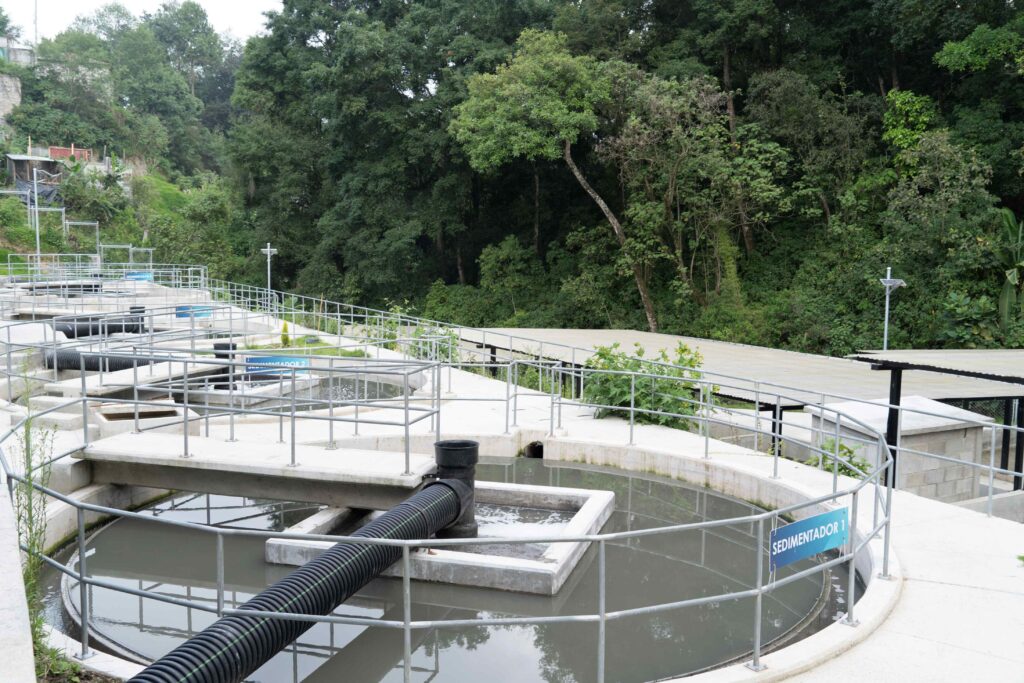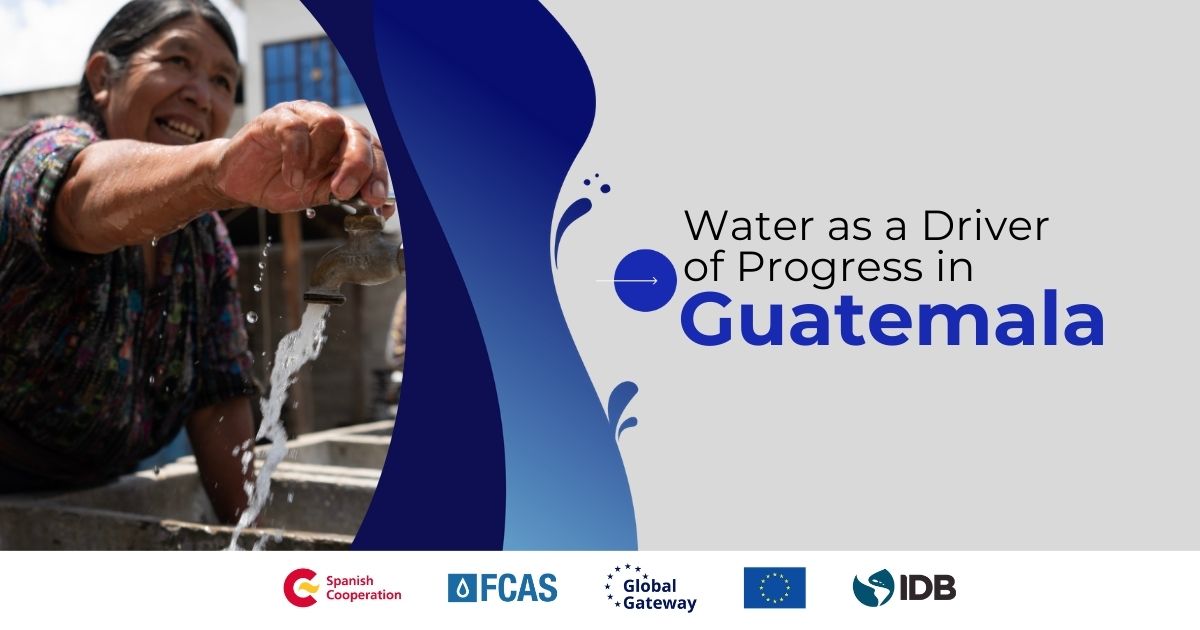“Our water is our life”, says Irma Pecher as she welcomes us to the Chuimanzana village, located in the department of Sololá in southwestern Guatemala. She shares the challenges of accessing clean water in her community. Morelia Tos, her neighbor, approaches to recount her childhood of long daily walks through the ravines surrounding their community in search of potable water. “We had to carry our clothes to the mountains to wash them and then bring them back,” she says.
Access to water: A fundamental right, not a privilege
Access to basic services like drinking water and sanitation is a cornerstone of fairer societies. But millions of people worldwide don’t have access to adequate services, which especially affects their health.
According to a study by the Inter-American Development Bank (IDB), 88% of infectious diseases are related to gaps in these services, and 61% of infant mortality is due to intestinal parasites. Poor health affects almost every aspect of human life. It makes children miss school more, it reduces their ability to learn, and it affects the development of other skills. Once they are adults, these same individuals will be at a disadvantage when applying for jobs, with reduced productivity, less career advancement, and lower income. Women suffer these effects more than men.
According to data from UN Water, despite Guatemala’s abundant water resources, six out of 10 households in the country lack access to drinking water, and five out of 10 are not connected to the sewage system.



Guatemala: A country with water and the chance to expand access to it
According to the XII National Population Census and VII Housing Census (2018), 11% of Guatemalans must get water from sources like rainfall, rivers, lakes and springs. This percentage is higher in some rural departments. These families without access to water have a higher burden of unpaid domestic work, which falls disproportionately on women and girls. This, in turn, is reflected in disparities in education attainment: women in rural areas have received an average of 4.1 years of schooling compared to 4.9 for men. Irma and Morelia, for example, helped with household chores from an early age, and their education was not as high a priority.
Beyond water: Sanitation, health and dignity
In addition to its health consequences, lack of access to sanitation affects people’s dignity by compromising their privacy and hygiene. This issue is worse for women and girls, who are exposed to urinary tract infections and can struggle to maintain safe and proper menstrual hygiene under such conditions.
When schools have no sanitation services, girls may miss classes during menstruation and, ultimately, drop out of school. And having to look for safe places to perform basic bodily functions can put them at greater risk of sexual harassment and violence.
Strategic investment: Water and sanitation for development
To help Guatemala reduce these gaps, the IDB has partnered with the Spanish Agency for International Development Cooperation (AECID) to provide $100 million in funding for the Potable Water and Sanitation Program for Human Development – Phase I, of which $50 million is a grant from the Spanish government through the Cooperation Fund for Water and Sanitation.
One of its purposes was to build and improve water and sanitation systems in rural, urban and peri-urban areas, benefiting over 55,000 people in rural areas of the country, who, like Irma and Morelia, had to navigate multiple daily challenges to get water.
Tangible impact: Stories of change in communities Some urban areas in Guatemala also have poor drinking water services, with only one or two hours of water a day. Sobeida López, who lives in the departmental capital of San Marcos, recalls that “we had limited hours of water and had to store it in different tanks, but it was poor quality, and our kids got stomach illnesses.” The program carried out improvements that benefited more than 135,000 people in urban and peri-urban areas, who now have access to water most of the time. “Everything has improved. We have good-quality water and my kids no longer get sick,” Sobeida adds.

Another program component improved sanitation services for over 75,000 people in rural areas and more than 100,000 in urban areas. It currently benefits people in 13 of the country’s 22 departments.
To make sure the infrastructure for these services is sustainable, the program worked to build the capacity of the population and local authorities to manage and use it efficiently. It fostered awareness and ownership, involving communities and municipalities in activities like preparing regulations for managing, operating, and maintaining water and sewage systems, as well as workshops on plumbing, water quality monitoring and solid waste management.
“Now, thank God, we have water in our homes. Everything is easier for us, and our homes are more hygienic than before,” Morelia concludes.
One drop at a time, this program has changed the stories of people like Irma, Morelia and Sobeida, who now enjoy a better quality of life and can participate in society on more equal footing.
This article is part of the series “Changing the World through Water and Sanitation,” a collaboration between the IDB and the Spanish Agency for International Development Cooperation (AECID) that showcases the impact of water and sanitation projects on people in Latin America and the Caribbean.


Leave a Reply